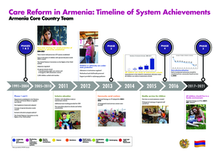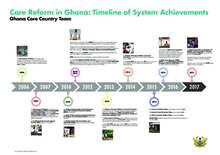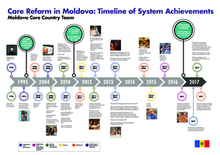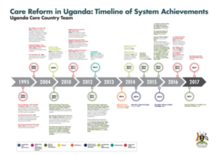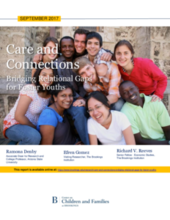Displaying 2171 - 2180 of 4273
17.5% of children who need care in Japan live in foster placements, while most of them are living in institutions; an expert panel of the Health, Labor and Welfare Ministry, however, has announced a new goal which prioritizes foster care.
This infographic provides a historical timeline of the alternative care reform process in Armenia, marking key achievements in the establishment of policies, strategies, guidelines, procedures, and programs to improve the quality of care and protection for children without adequate family care.
This infographic provides a historical timeline of the alternative care reform process in Ghana, marking key achievements in the establishment of policies, guidelines, procedures, and programs to improve the quality of care and protection for children without adequate family care.
This infographic provides a historical timeline of the alternative care reform process in Moldova, marking key achievements in the establishment of policies, guidelines, procedures, and programs to improve the quality of care and protection for children without adequate family care.
This infographic provides a historical timeline of the alternative care reform process in Uganda, marking key achievements in the establishment of policies, guidelines, procedures, and programs to improve the quality of care and protection for children without adequate family care.
The foster care "hackathon" series explores how technology can be optimized to streamline child welfare systems and improve series to young people in care and their families.
This presentation delivered by Dr. Kristen Cheney describes her research findings on the "Orphan Industrial Complex," which suggest that orphan tourism, orphanage volunteering, and donor support for orphanages are the primary drivers of the unnecessary separation of children from their families and the harmful institutionalization of children.
This report explores the challenges of implementing and evaluating relationship-based interventions for young people with experience in the U.S. foster care system and presents recommendations for both practitioners and researchers for successful implementation and evaluation in the future.
New research indicates that almost half of England’s 26,340 care leavers are suffering from at least one mental health issue, and 65% of them are not getting help from the government.
This week the Cambodian government released an explanatory note to educate the public on domestic adoption; however, some express concern whether bolstering domestic adoptions is currently feasible or safe for children.


